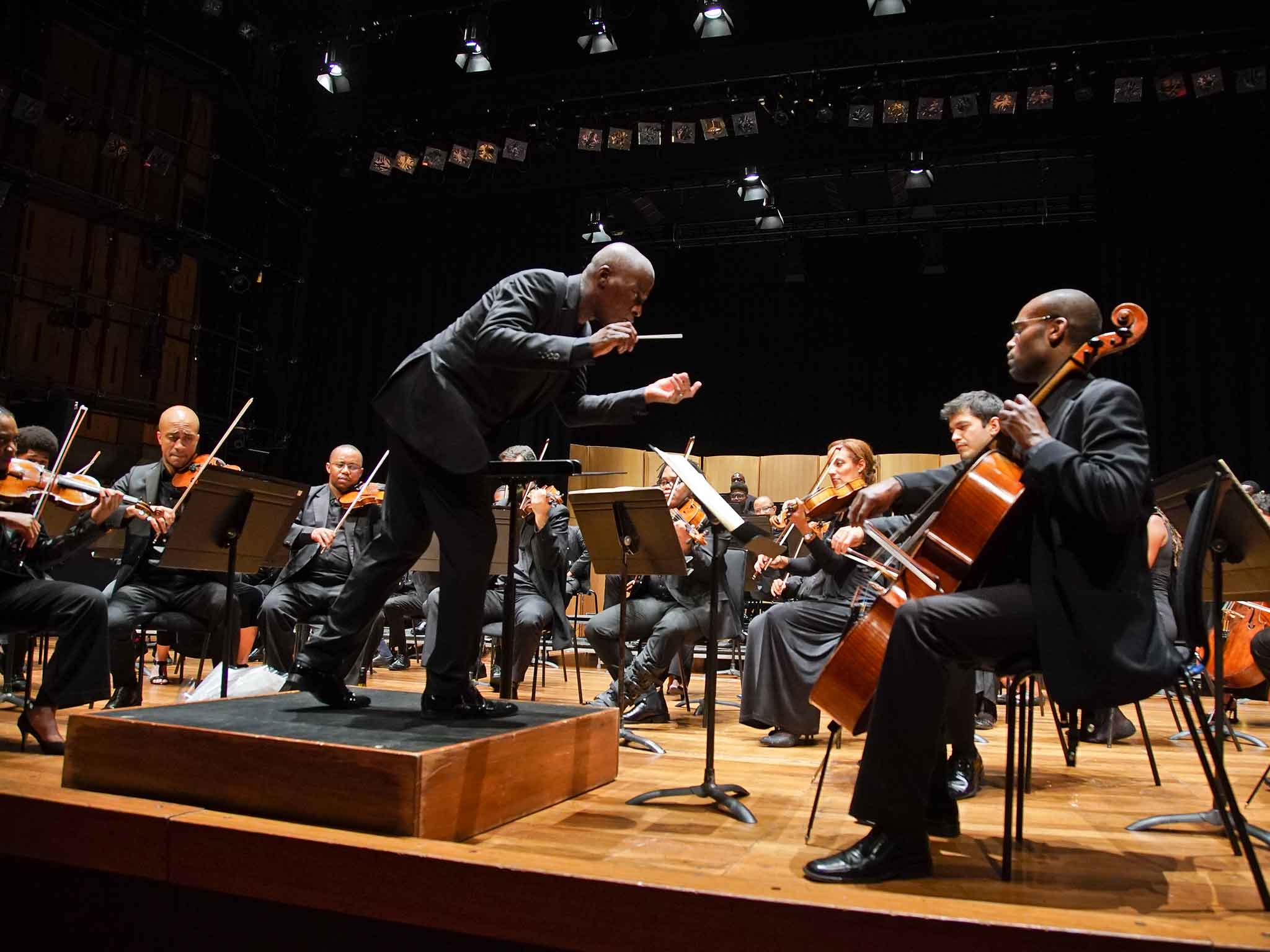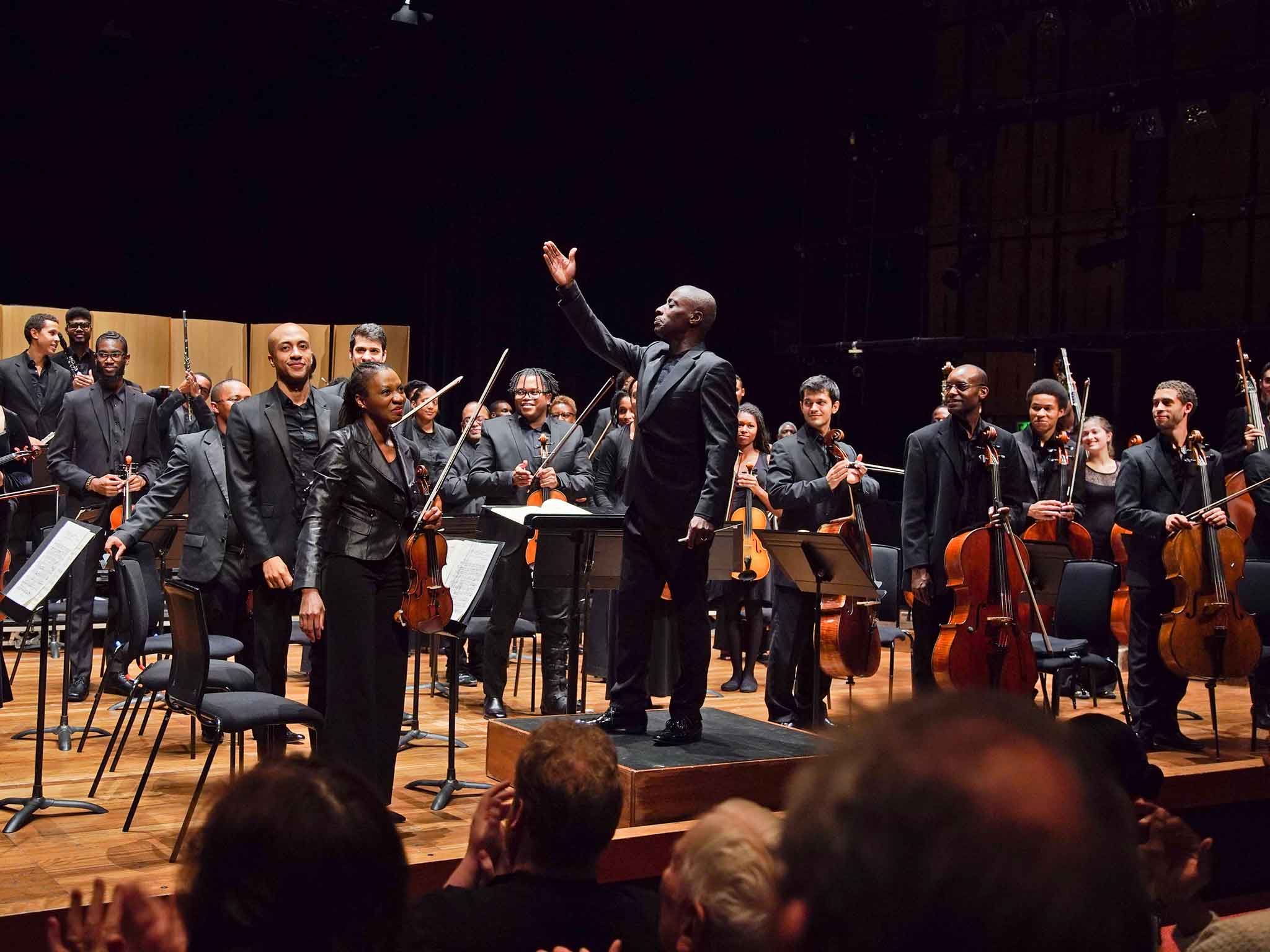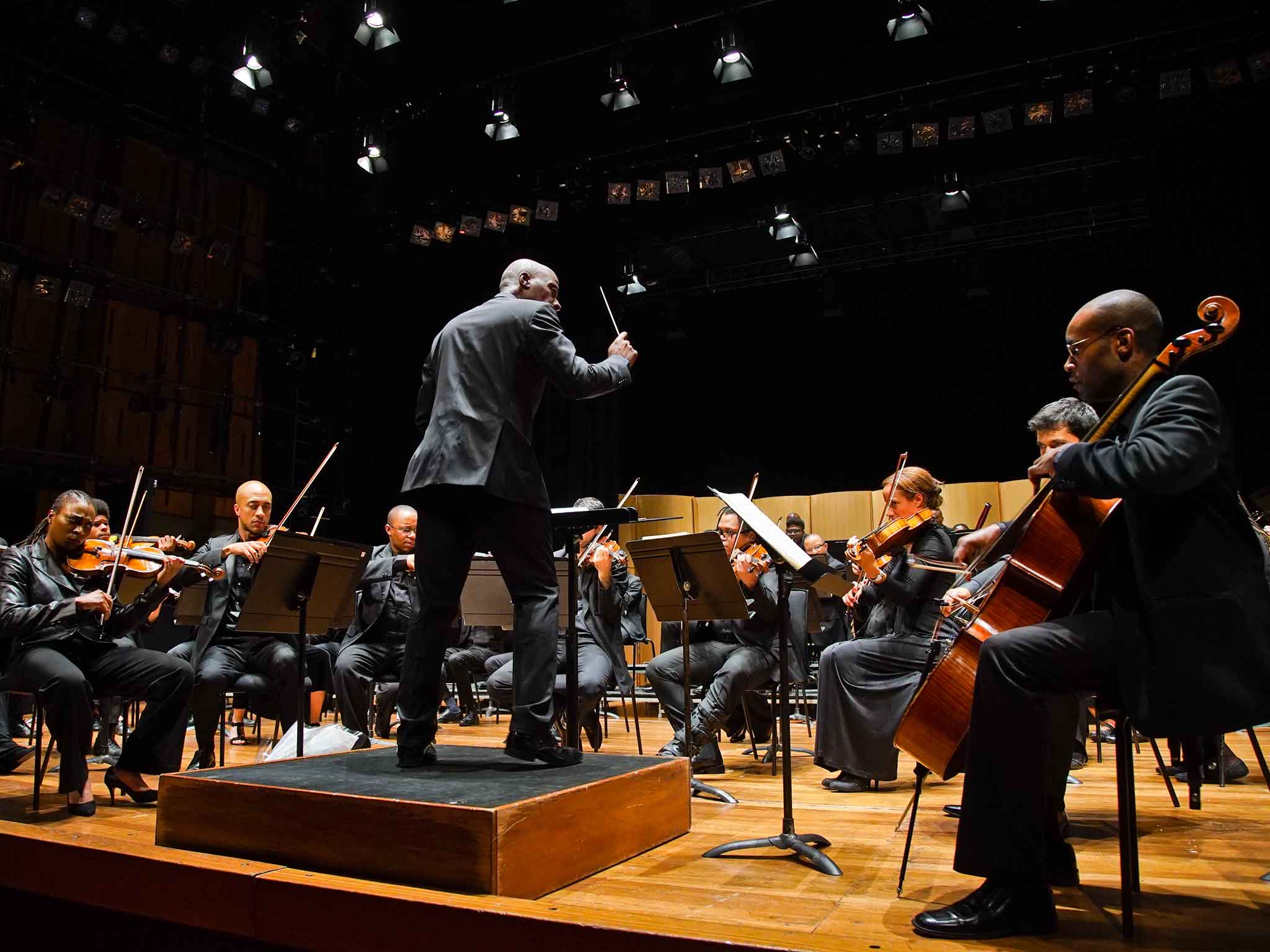Chineke!, Queen Elizabeth Hall, review: Europe's first professional BME orchestra offers freshness, energy and flashes of brilliance
Not before time, Chineke! represents a significant moment in our cultural life

Your support helps us to tell the story
From reproductive rights to climate change to Big Tech, The Independent is on the ground when the story is developing. Whether it's investigating the financials of Elon Musk's pro-Trump PAC or producing our latest documentary, 'The A Word', which shines a light on the American women fighting for reproductive rights, we know how important it is to parse out the facts from the messaging.
At such a critical moment in US history, we need reporters on the ground. Your donation allows us to keep sending journalists to speak to both sides of the story.
The Independent is trusted by Americans across the entire political spectrum. And unlike many other quality news outlets, we choose not to lock Americans out of our reporting and analysis with paywalls. We believe quality journalism should be available to everyone, paid for by those who can afford it.
Your support makes all the difference.Chineke is an Igbo word meaning ‘the spirit of creation’, and as it comes from one of Chi-chi Nwanoku’s ancestral languages, she’s taken it for the name of the orchestra she’s just founded. And – not before time - the Chineke! Orchestra does represent a hugely significant moment in our cultural life, it being Europe’s first-ever symphony orchestra made up entirely of BME – Black and Minority Ethnic – professional musicians.
With a Nigerian father and an Irish mother, this charismatic double-bassist was the only black child at her primary school, and later the only black student at the Royal Academy, but her natural ebullience (plus talent) has spared her career from being blighted by racism. But she now admits she was blind to the institutionalised racism of the music business: only later did she realise what worlds of musical talent had been systematically suppressed.
What she calls her lightbulb moment came when the Kinshasa Orchestra performed at the Southbank Centre last year. ‘I noticed people looking incredulously at this black orchestra,’ she recalls, ‘and it was that look of incredulity which spurred me into action.’

It was indeed a pleasurable shock to see her new orchestra filling the stage – predominantly young, hailing from all over the globe - and to hear their fine attack under the direction of Wayne Marshall in the opening movement of Coleridge-Taylor’s Ballade for Orchestra. The playing was full of freshness and energy, and each instrumental section’s focus was sharp and incisive, with woodwind and brass outstanding. Next came a smoothly accomplished performance of Philip Herbert’s Elegy: in memoriam – Stephen Lawrence, whose gently interwoven melodic lines allowed for some lovely cello solos. Barring a few rough edges, the echoes of Dvorak in both these pieces were sensitively rendered.
The bigger test of Brahms’s St Anthony Variations brought out brilliance in the winds, and, although Marshall could have gone for stronger dynamic contrasts, the character of this work came vividly across with its intricate polyphonies, muscular dissonances, and alternations between boisterousness and lyricism. The finale of Beethoven’s Seventh Symphony, which ended the programme, became a hurtling ride. ‘Thank you, we’ve had a great time,’ said Marshall after their standing ovation. And so, emphatically, had we.

As Chi-chi points out, the bottom line in all this is education. The problem lies not in well-endowed private schools, but in those thousands of primary schools where no teacher has any musical training, and where Gradgrind heads measure success in terms of ‘core’ subjects. Despite the virtuous noises made by every government over the past thirty years, music education in many state schools is now in the doldrums.
Looking at the audience for the Last Prom the night before, I realised that it was 99 per cent white: I could see only one black face, and that belonged to the composer of the first work in the programme. Yet ten years ago at this event you’d have found a discernible ethnic mix: in terms of cultural integration, the musical world is actually going backwards. This is the mountain which Chi-chi and her colleagues have set themselves to climb.
Join our commenting forum
Join thought-provoking conversations, follow other Independent readers and see their replies
Comments